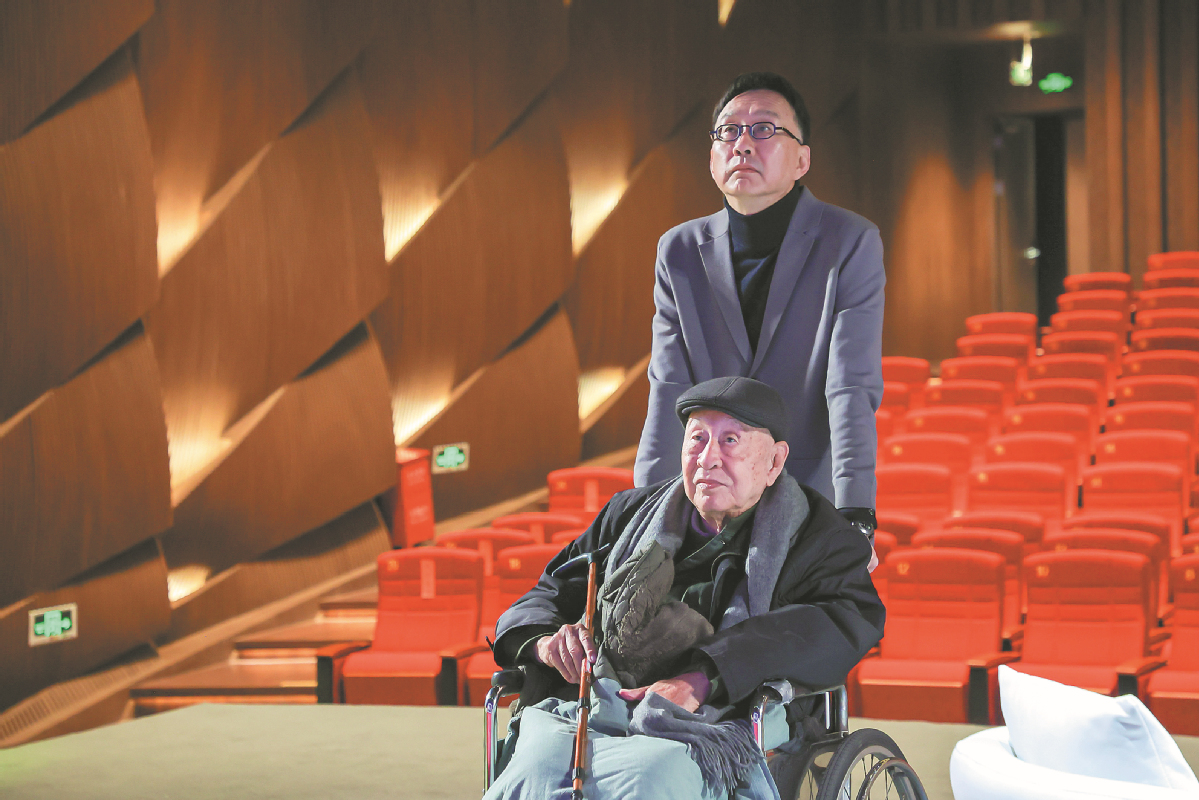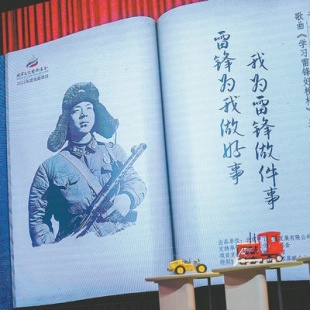Lyrics that are fit for a hero


Wu's son, Wu Jiading, a renowned theatrical director and songwriter, supports his father's idea of sharing the song and giving it free to everyone who participates in the project. Moreover, he is working on an original Chinese musical, titled The Story of Lei Feng, in which his father's classic song will be featured.
"I've listened to the stories of Lei Feng and to my father recounting how he wrote the song since I was a child. It's a collective memory of many Chinese people to learn from Lei, one which has lasted since 1963 until today," says Wu Jiading, 62.
"I have been writing songs for over four decades and now I am working on the songs for a musical about Lei Feng, which is also a tribute to my father."
He notes that Lei is an enduring household name, and one who exists in people's daily lives, even though he died a long time ago.
"There are songs, movies and plays about him. His image can be found on cups, T-shirts and bags, which are popular among young people," he says.
For the musical, Wu Jiading visited the Lei Feng Memorial Hall in Fushun, Northeast China's Liaoning province, where he saw photos of the young soldier as well as his diaries.
"He had the habit of writing diaries and he was good at writing. It allowed me to get to know this young man, as a human being and a role model," Wu Jiading says.
Lei was born on Dec 18, 1940, in Wangcheng, Central China's Hunan province. He graduated from middle school in 1956 and then worked as a tractor driver on a local farm. In 1958, he started working as a bulldozer driver at an iron and steel factory in Anshan, Liaoning, and in 1960, he became a Party member and joined a transportation unit of the People's Liberation Army based in Northeast China.
Lei died on Aug 15, 1962, when a telegraph pole fell, injuring his head.

In the musical, Wu Jiading will tell the story of Lei through three vehicles that Lei drove: a yellow tractor, a red bulldozer and a green Jiefang truck. "Those three vehicles carried Lei's life and dreams. His dedication to his jobs and his kindness for people will be portrayed through songs in the musical," he says.
One of the highlights will be four young people, all aged at 22, singing songs as if having conversations with Lei.
"Since musicals are very popular art among contemporary young audiences, I hope that they will learn the story of Lei Feng again from a fresh perspective. The lovely young soldier will always be remembered," says Wu Jiading.
Supported by Beijing Culture and Arts Fund, the musical will premiere in November.



































